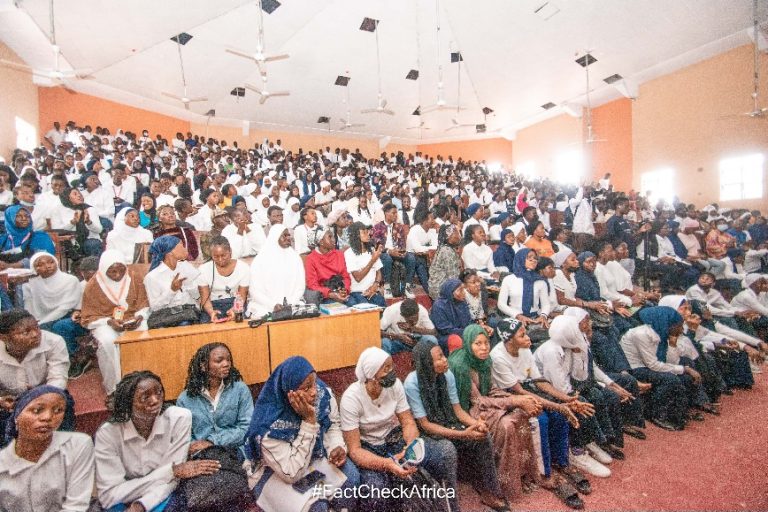FactCheck Africa, a journalism project of the Brain Builders Youth Development Initiative (BBYDI), has begun a month-long Fact-Checking Training and Digital Rights Youth Conference across some selected universities in Nigeria’s six geo-political zones, starting with the Kwara State University, Malete (KWASU) in North Central region.
The conference which was held at the University’s ICT Auditorium on Wednesday, had some dignitaries and academic scholars in attendance, including: Dr. Isiaka Zubair Aliagan, Acting Dean, Faculty of Information and Communication Technology, KWASU; Dr. Lambe Kayode Mustapha, Associate professor, Department of Mass Communication, University of Ilorin.
Dr. (Mrs) Monsurat Wonuola, Department of Mass Communication, Al-Hikmah University, Ilorin; to Dr. Patrick Udende, Department of Mass Communication University of Ilorin and Radio Nigeria were panelists at the conference.
FactCheck Africa is a platform created by BBYDI, funded by United Nation Embassy and supported by BECERA to tackle false information around issues in Government, Elections, Climate, Conflicts and more, through timely, rigorous and accurate fact-checking.
While presenting his speech, Dr. Lambe Kayode Mustapha, Associate Professor in the Department of Mass Communication, University of Ilorin, explained the crucial role of ensuring information integrity in the dissemination process through the theme: ‘Containing and Controlling Information Pollution: Who Has the Solutions – Platforms or Government?
The associate professor highlighted the bad effect of sensationalism, he said, “Yellow journalism fueled by sensationalism should be discouraged, as falsehood tends to spread faster than the truth.”
In his welcome remarks, Olasupo Abideen, the Global Director of BBYDI, emphasized the need to tackle information disorder.
“The event is tailored to address the six geopolitical zones in Nigeria, starting with the North Central region. There’s a pressing need to tackle disinformation as the distinction between facts and fiction becomes increasingly blurred. Today, we equip future leaders with the tools to prioritize facts over fiction,” He said.
In his reaction, a lecturer in the university’s department of Mass Communication, Daranijo Habeeb, expressed gratitude to the organization for taking the right step in keeping people informed about the danger of fake news.
According to Habeeb, he achieved a lot by learning from the best in the field and academics regarding information pollution, ways to combat it and digital rights nitty-gritty.
Also, another participant simply identified as Abdulganiyu said “The conference is a right step at the right time considering how polluted the media ecosystem is right now, it’s just like an eye opener for the participants and a motivation to engage in a war against information disorder.”
“I did not regret that I attended this conference because the program was fascinating and an educational experience to her,” another participant, Maryam Ajadi said.
